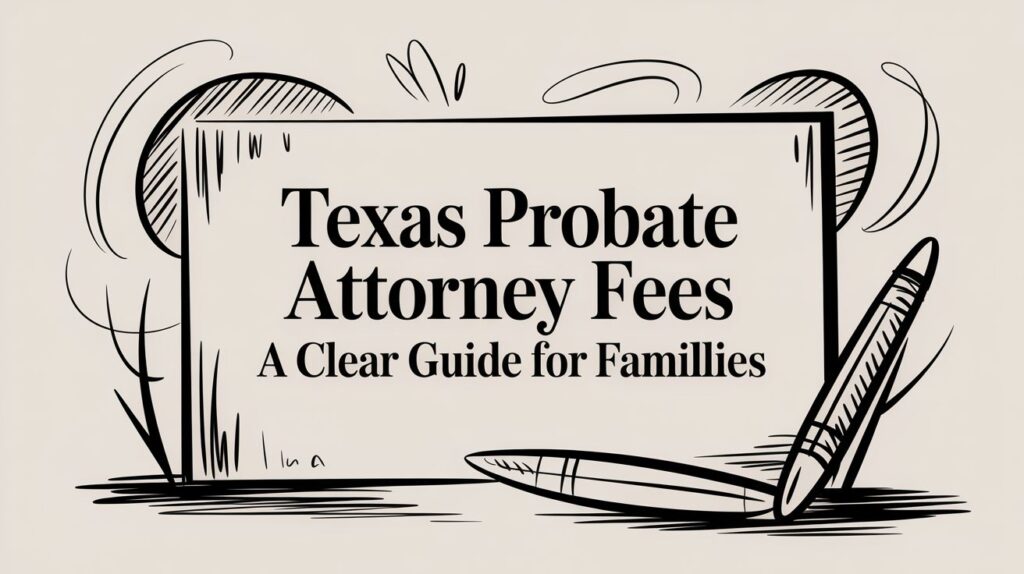In the aftermath of a loved one’s death, estate administration can be one of the most emotionally and legally complex experiences a family faces. At the center of this process stands the executor — the person appointed to carry out the deceased’s final wishes, settle debts, and distribute assets according to the will. Often, the person chosen for this role is not a distant party but a close relative, spouse, or child — someone who also happens to be a beneficiary of the estate.
When the executor is also a beneficiary, it naturally raises questions about fairness, transparency, and potential conflicts of interest. Can someone effectively serve two roles that might pull them in different directions? Does Texas law permit such an arrangement? And more importantly, what protections exist to ensure all beneficiaries receive their fair share? Understanding how Texas law addresses these questions can help families approach estate planning and probate with greater confidence and fewer surprises.
The Dual Role: Executor and Beneficiary

It may sound counterintuitive at first, but under Texas law, it is entirely legal — and actually quite common — for an executor to also be a beneficiary. This dual role often makes practical sense. The deceased typically appoints someone they trust deeply, and that person is usually a close family member who also stands to inherit. Appointing a family member can also reduce administrative costs and ease the emotional burden of working with a stranger.
However, with this arrangement comes the possibility of conflict. As executor, the individual has fiduciary duties to all beneficiaries, not just themselves. They must act impartially, follow the terms of the will, and make decisions in the best interest of the estate. As a beneficiary, they have a personal stake in how assets are valued, distributed, and administered.
Texas law recognizes this inherent tension and places legal obligations on the executor to ensure that personal interests do not override fiduciary duties.
Fiduciary Duties Under Texas Law
In Texas, executors owe fiduciary duties to the estate and its beneficiaries. These duties include loyalty, full disclosure, impartiality, and prudent management of estate assets. Even if the executor is a beneficiary, these responsibilities do not diminish. Violating any of these duties can result in removal from the role, personal liability, and even litigation.
One of the primary fiduciary obligations is the duty of impartiality. The executor must administer the estate fairly, ensuring that no beneficiary receives preferential treatment. This includes valuing assets properly, paying debts and taxes as required, and distributing property exactly as the will dictates.
The executor must also provide an accurate inventory of the estate’s assets, file annual accountings when necessary, and keep beneficiaries informed throughout the probate process. Transparency becomes critical in preventing or addressing any suspicions that the executor might be favoring their own interests.
Even though Texas probate courts often defer to the named executor in the will, courts maintain oversight. Beneficiaries who feel slighted or suspect misconduct can petition the court for intervention, demand formal accountings, or seek the executor’s removal if evidence shows they are not fulfilling their fiduciary duties.
Common Sources of Conflict

Despite the legal framework, conflicts still arise when executors are also beneficiaries. Much of this tension revolves around discretion. Even though the executor is legally bound to follow the will, certain decisions are not always black and white.
For example, disputes may arise over how estate assets are valued and liquidated. If the executor must sell property to satisfy debts, the question of how and when to sell can impact the total value of the estate and, consequently, the executor-beneficiary’s inheritance. Other conflicts may stem from disagreements over which debts to prioritize, how quickly to distribute assets, or whether certain estate expenses are necessary.
In some cases, resentment builds not from deliberate misconduct but from a simple lack of communication. Other beneficiaries may feel excluded from the decision-making process or suspect the executor of acting in their self-interest when decisions are made without full disclosure.
Texas courts recognize that these situations are highly sensitive. While being a beneficiary does not automatically disqualify someone from serving as executor, their decisions are subject to scrutiny if challenged. Beneficiaries who believe the executor is engaging in self-dealing, delaying distributions unnecessarily, or failing to follow the will’s terms can bring formal actions before the court.
The Role of Independent Executors in Texas
Texas allows for the appointment of independent executors, a feature that can reduce court supervision and speed up probate. When a will names an independent executor, and the court grants independent administration, the executor operates with greater freedom to handle estate affairs without frequent court approvals.
However, independence does not eliminate fiduciary duties. The independent executor must still act impartially, prudently manage assets, and communicate with beneficiaries. The absence of court supervision does not mean the absence of accountability. If beneficiaries believe the independent executor is breaching their fiduciary duty, they can still petition the court to intervene.
In many ways, the independent executor model reflects a balancing act. It gives executors the flexibility to manage routine tasks more efficiently while still preserving the beneficiaries’ right to challenge any misconduct or mismanagement.
Legal Remedies for Beneficiaries
Texas beneficiaries are not without options when concerns arise about an executor-beneficiary acting unfairly. Several remedies exist under Texas law to protect the interests of all beneficiaries.
Beneficiaries can request a formal accounting of the estate. This requires the executor to provide a detailed report of all estate transactions, including income, expenses, asset sales, and distributions. If the executor fails to comply, the court can compel production of records or impose sanctions.
If beneficiaries suspect financial misconduct or breach of fiduciary duty, they can petition the probate court for the executor’s removal. Courts will consider evidence of self-dealing, mismanagement, or failure to act in the estate’s best interest. If proven, courts may replace the executor, order restitution, and award legal fees.
Litigation is a last resort but remains an option for serious cases of abuse. Beneficiaries can file lawsuits against executors who commit fraud, embezzlement, or intentionally mismanage estate assets. While litigation can be lengthy and expensive, Texas courts take fiduciary breaches seriously and have broad authority to protect beneficiaries and punish wrongdoing.
Steps to Avoid Conflict When Appointing an Executor-Beneficiary
Many of the conflicts that arise when an executor is also a beneficiary can be minimized long before probate begins. Clear and thoughtful estate planning reduces the potential for disputes, even in emotionally charged situations.
Testators should consider the potential for conflict when selecting an executor. While trust and familiarity are important, selecting someone with financial savvy, good communication skills, and a temperament for impartiality can make a significant difference.
Wills should be drafted with as much clarity and specificity as possible. Ambiguous language creates opportunities for interpretation and conflict. Identifying beneficiaries, assets, and instructions leaves less room for disagreement.
Additionally, open conversations with family members before death can set expectations and address concerns in advance. When beneficiaries understand the reasons behind the executor’s appointment and the terms of the will, they are often less likely to feel blindsided or suspicious during probate.
Legal counsel can also play a preventive role. Estate planning attorneys may recommend using trusts, co-executors, or professional fiduciaries for particularly complex or contentious estates. These structures can provide additional layers of oversight and reduce the burden on family members who may struggle to balance personal interest with fiduciary responsibility.
Texas Courts’ Approach to Executor-Beneficiary Conflicts

Texas courts generally operate with a presumption that the person named in the will is the testator’s choice and should serve as executor unless clear evidence suggests otherwise. Simply being a beneficiary is not sufficient reason for disqualification. The courts recognize that conflicts are often more theoretical than actual and will not intervene absent credible claims of mismanagement or wrongdoing.
When conflicts do arise, Texas courts emphasize their role as protectors of beneficiaries’ rights. The law gives judges broad discretion to require accountings, freeze estate assets, remove executors, and order restitution if misconduct is proven. The court’s priority is always the proper administration of the estate in accordance with the will and state law.
Conclusion: Balancing Trust and Responsibility
When an executor is also a beneficiary, the situation calls for both caution and trust. While Texas law fully permits this arrangement, it imposes strict fiduciary duties that must be honored. Executors who respect these duties, maintain transparency, and communicate openly with beneficiaries can fulfill both roles successfully.
For families navigating this delicate arrangement, careful estate planning and open dialogue can prevent misunderstandings that often lead to conflict. And for beneficiaries concerned about fairness, Texas law provides multiple tools to ensure that executors remain accountable and estates are managed properly. In the end, the role of executor-beneficiary demands not only legal authority but personal integrity, patience, and an unwavering commitment to honor both the wishes of the deceased and the rights of every heir.








